(Entered into force on 19 October 2001)
Basic Provisions
Article 1
This Law specifies:organisation, jurisdiction and competence of the Office for the Prevention of Corruption and Organised Crime (hereinafter: Office), jurisdiction and competence of courts and criminal offence procedures specified herein, appointment of the Head of the Office (hereinafter Head) and Deputy Head, assignment of public prosecutors and their deputies, conditions for employment of officers and employees, and provision of funds for the work of the Office, securing seizure of means, proceeds or assets resulting from criminal offence, cooperation of the government bodies and other bodies and persons with the Office, international cooperation in criminal prosecution and investigation of criminal offences under the Office’s jurisdiction.
Article 2
The Office is a special Public Prosecutor’s Office established for the territory of the Republic of Croatia with a seat in Zagreb.
Unless otherwise specified herein, the provisions of the Law on the Public Prosecutor’s Office shall apply to the organisation and activity of the Office.
The Office has a stamp bearing the name of the Office and the coat of arms of the Republic of Croatia. The name of the Office, the coat of arms and the flag of the Republic of Croatia shall be displayed at the building in which the Office is located.
Organisation, jurisdiction and powers of the office, appointment of head and deputy heads organisation of the office
Article 3
The Office is run by the Head. The Deputy Chief Public Prosecutor of the Republic of Croatia (hereinafter: Chief Public Prosecutor), or a County Public Prosecutor or his or her Deputy, may be appointed Head, if they meet the requirements for the appointment as the Deputy Chief Public Prosecutor.
The Head is appointed by the Chief Public Prosecutor, with a previously obtained opinion of the Minister of Justice, and the opinion of the panel of national Public Prosecutor’s Office of the Republic of Croatia.
The Minister of Justice shall issue his opinion from para 2 above within 30 days from the date of receipt of request.
The procedure for the appointment of the Head shall be initiated by the Chief Public Prosecutor four months prior to the expiration of the period for which the Head was appointed.
In addition to the request for opinion, the Chief Public Prosecutor shall forward to the Minister of Justice a written consent of the candidate.
The consent of the candidate shall contain the statement of acceptance of security checks pursuant to special regulations and a statement of property he or she owns or with which he or she disposes.
The data from para 6 above are classified. These data may only be used in the procedure for the appointment of the Head.
Security checks and checks of the property status of the Head, based on the request of the Chief Public Prosecutor, may be performed without the Head’s knowledge anytime during the period for which he was appointed, and one year after he or she ceased to perform the duty of the Head.
Article 4
The Head shall be appointed for a period of four years. After the expiration of this period, the Head may be reelected.
The Head shall be relieved of duty in the cases that apply to the relief of duty of a public prosecutor prescribed by the Law on the Public Prosecutor’s Office (Official Gazette No. 51/01).
(3) Besides the cases from para 2 above the Head shall be relieved of duty:
if he or she does not agree to security checks or impedes their implementation, or
if he or she does not provide, in due time, data on his or her property status.
(4) In cases from para 2 above, unless they refer to the relief of duty for disciplinary reasons, and para 3 above, the Head shall remain Deputy Chief Public Prosecutor, or County Public Prosecutor, but he or she may not work at the Office.
The Head shall have the rights and duties of a Public Prosecutor.
Article 5
The Public Prosecutor’s Office duties at the Office shall be performed by the Head and Deputy Heads. The number of Deputy Heads of the Office shall be determined by the Minister of Justice at the proposal of the Chief Public Prosecutor.
The Deputy Head is authorised, when he or she acts as the Head, to conduct all actions in the proceedings before a court or other government body, for which the Head is authorised pursuant to law, according to the schedule of duties and under instructions by the Head.
Article 6
With the previous approval of the Minister of Justice, the Head shall issue the systematisation of civil servant and employee posts.
The Minister of Justice shall issue the Internal Rules of the Office.
Article 7
The Public Prosecutor or Deputy Public Prosecutor who, after passing the judicial exam worked at least eight years as a judge, public prosecutor, deputy public prosecutor, lawyer, or a police officer combating crime, and who has pronounced inclination toward and capabilities for investigating the most serious and complicated criminal offences, may be assigned as the Deputy Head of the Office.
The Deputy Head shall be assigned in the way, under the conditions and according to the procedure in which his or her expertise, independence and capability for performing public prosecution duties of the Office are best employed.
The expertise and capability to perform public prosecution duties working for the Office shall be determined on the basis of opinion on the performance of the candidate issued by a public prosecutor, the evaluation of his work in complex cases, his performance in the preliminary proceedings and the criminal proceedings, and on the basis of the evaluation of his performance as public prosecutor.
Article 8
A Deputy Head vacancy shall be announced in the way that it shall be made accessible to public prosecutors and their deputies. Candidates may apply within thirty days from the date of announcement.
The Deputy Head is assigned to the Office by the Chief Public Prosecutor, at the proposal of the Head, from among the public prosecutors and deputy public prosecutors, for a period of four years. After the expiration of this period, the Deputy Head may be reassigned to the Office. In his or her decision on the assignment, the Chief Public Prosecutor shall take into consideration the information from Article 7, para 3 hereof, and notably the data on the candidate’s performance as a public prosecutor.
If the Head is not reappointed or the Deputy Head is not reassigned to the Office, he or she shall continue to work as Deputy Public Prosecutor at the Public Prosecutor’s Office where he or she worked prior to his or her appointment to the Office.
The provisions of Article 3, para 4 through 8 hereof shall apply to the assignment procedure of the Deputy Head.
Article 9
The provisions of the Law on Public Prosecutor’s Office shall apply to relieving of duty of Deputy Heads. The mandate of the Deputy Head at the Office shall also cease for reasons specified in Article 4, para 3 hereof.
The Head, with the approval of the Minister of Justice, and the Deputy Head with the approval of the Head, may cease working for the Office at his or her own request.
The decision on the termination of the office of the Head or Deputy Head for the reason stated in para 2 above shall be made by the Chief Public Prosecutor.
The Head or the Deputy Head who stops working in the Office under the conditions from para 3 above shall continue to work as the Deputy Head of the Public Prosecutor’s Office where or she worked before the appointment or assignment to the Office.
Article 10
Exceptionally, for particularly important reasons, the Chief Public Prosecutor may, at the proposal of the Head, refer a Public Prosecutor or a Deputy Public Prosecutor to work for the Office on a particular case or for a limited period of time.
The provisions of Article 3 para 5 through 8 hereof shall apply accordingly to the procedure of referring to work for the Office.
Referring to work in cases from para 1 above shall not exceed one year.
Article 11
The Office shall employ senior counsellors, counsellors and investigative assistants appointed pursuant to the provisions of the Law on Public Prosecutor’s Office.
The provisions of Article 3, para 6 through 8 hereof and the provisions of the Law on the Public Prosecutor’s Offices shall apply accordingly to the procedure of the appointment of senior counsellors and counsellors.
Investigative assistants shall assist the Head or the Deputy Head in cases in which expert knowledge is required, and may perform their work independently, when this is specified by law or other regulation.
The provisions of Article 3, para 6, 7 and 8 hereof and the Law on Civil Servants and Employees (Official Gazette No. 27/01) shall apply to the procedure of admission and assignment to work and the termination of work of investigative assistants, unless specified otherwise herein.
Senior counsellors, counsellors and investigative assistants shall be admitted and assigned to work by the Head.
Article 12
The Office shall include:
Investigation and Documentation Department,
Anticorruption and PR Department,
Department of Public Prosecutors acting as Prosecutors before court (hereinafter: Prosecutor’s Department),
Secretariat
Supporting Services.
Article 13
Investigation and Documentation Department shall:
systematically collect data on corruption and organised crime,organise and run a data basis which may serve as a source of information in the criminal proceedings from Article 21 hereof,encourage and direct the cooperation between the government bodies with a view to discovering corruption and organised crime,perform other duties according to the annual schedule of duties.
Records shall be kept pursuant to the regulations on the protection of the confidentiality of data, as specified by special rules issued by the Minister of Justice.
The duties of the Investigation and Documentation Department shall be carried out by counsellors and investigative assistants under the surveillance of the Deputy Head who shall be responsible for the Office management, according to the annual schedule of duties.
Article 14
The Anticorruption and PR Department shall:
inform the public of the danger of and damage by corruption, and the methods and means to prevent itdirect, together with other competent bodies and institutions, activity from the Action Plan of the National Anticorruption Programme,prepare reports and analysis on the form and causes of corruption in public and private sectors on the basis of which it shall propose amendments to laws and by-laws and give expert advice to competent bodies for the implementation of these regulations,organise and direct the implementation of permanent professional education of criminal justice officers and other civil servants, as well as of employees of schools and other educational institutions, on the danger of corruption and the importance of its prevention,perform other duties according to the annual schedule of duties.
Duties of the Anticorruption and PR Department shall be performed by counsellors and investigative assistants under the surveillance of the Deputy Head assigned to run the Department according to the annual schedule.
Article 15
The Prosecutor’s Department shall carry out duties of public prosecutor pursuant to the Criminal Procedure Act and other regulations, and notably direct the work of the police authorities and other bodies in discovering criminal offences from Article 21 hereof and request the gathering of information on these offences cooperate, in accordance with international agreement, with competent bodies of other states and international organisations,propose the implementation of security measures of compulsory seizure of funds, revenues and property acquired through criminal offence as specified herein and in other regulations,perform other duties according to the schedule of duties.
If required by the workload, Sections within the Prosecutor’s Department may be established for actions before county courts in Osijek, Rijeka and Split.
The duties of the Prosecutor’s Department shall be performed by deputy heads, counsellors and investigative assistants under the surveillance of the deputy assigned to run the Department according to the annual schedule of duties.
Article 16
The Secretariat shall perform the duties of personnel management and other duties according to the annual schedule of duties.
Article 17
The Chief of Police, shall issue a decision with previous written consent of the Head, to transfer to the Office at least two independent police inspectors, or higher police officers, pursuant to the provisions of the Law on Civil Servants and Employees.
(2) The police officers from para 1 above shall:
cooperate in forwarding the Office’s requests and assist in their;
propose the necessary measures and actions for discovering criminal offenders, and for finding and securing evidence;
harmonise the work of the police to whom the Office forwarded request for investigating criminal offences.
The Chief of Police at the Ministry of the Interior shall organise an expert team for executing the requests of the Office, and decide on the technical means to be used to this effect.
Article 18
(1)The regulations applicable to civil servants and employees at the Public Prosecutor’s Office shall apply to the rights and duties from and related to the work of civil servants and employees of the Office.
The provisions of Article 3 para 6 through 8 hereof shall apply accordingly to civil servants and employees.
Article 19
Security of the premises of the Office, its facilities, and of the actions taken by the Office, shall be maintained through physical and technical protection of judicial police officers assigned to work at the Office.
Physical protection means immediate guarding and protecting of persons and property through direct security measures and physical force.
Technical protection of persons and property includes technical means and devices whose type, purpose and quality is determined by the Minister.
Article 20
(1) Judicial police officers are transferred to work to the Office by the Minister of Justice, with previous written agreement of the Head. Before the assignment to work at the Office, provisions of Article 3, para 6 through 8 hereof shall apply accordingly.
(2) During their work at the Office, judicial police officers shall act according to the instructions of the Head and may not, without his previous approval, perform other duties.
Competence of the Office
Article 21
The Office performs duties of the Public Prosecutor’s Office related to the following criminal offences:
misuse in bankruptcy proceedings from Article 283, paras 2 and 3 of the Criminal Code (Official Gazette No. 110/97, 27/98, 50/00, 129/00 and 51/01 – hereinafter Criminal Code), unfair competition in foreign trade operations from Article 289, para 2 of the Criminal Code, misuse in performing government duties from Article 338 of the Criminal Code, illegal intercession from Article 343 from the Criminal Code, accepting bribe from Article 347 of the Criminal Code and offering bribe from Article 348 of the Criminal Code);
association for the purpose of committing criminal offences from Article 333 of the Criminal Code, including all criminal offences committed by the group or criminal organisation, except for the criminal offences against the Republic of Croatia and the Armed Forces;
offences for which prison sentence in excess of three years is provided, and the offence has been committed in two or more states or a significant part of its preparation, planning, instruction or control has been performed in another state, or if the offence has been committed in connection with the activity of a criminal organisation active in two or more states.
The Office is competent for the criminal offences of money laundering from Article 279, paras 1 and 2 of the Criminal Code, obstruction of evidence from Article 304, paras 1 and 2 of the Criminal Code, duress against officials engaged in the administration of justice from Article 309 of the Criminal Code, obstructing an official in the performance of duty from Article 317 of the Criminal Code, and attacking an official from Article 318 of the Criminal Code, if such offences have been committed in connection with the perpetration of criminal offences from para 1 above.
Jurisdicion and competence of courts and criminal proceedings provided hereunder
Article 22
In the criminal proceedings from Article 21 hereof, the Criminal Procedure Act shall be applied (Official Gazette No: 110/97, 27/98, 58/99 and 112/99) as well as other general criminal proceedings regulations, unless provided otherwise hereunder.
Article 23
(1) The bodies that participate in the criminal proceedings from Article 21 hereof shall proceed expediently, but in the way that does not affect their capability to investigate, with equal attention, the facts to benefit or prejudice of the accused.
Information on preliminary investigation in cases from Article 21 hereof shall not be published without the approval of the Head. Non-authorised publication shall constitute a criminal offence of disclosing official secret from Article 351 from the Criminal Code.
(3) The course of investigation in the cases from Article 21 hereof shall not be published without the approval of the court.
Article 24
The County Courts in Osijek, Rijeka, Split and Zagreb have subject-matter and territorial jurisdiction in criminal cases from Article 21 hereof.
The County Court in Osijek shall have jurisdiction over the territories of the County Courts in Požega, Slavonski Brod, Virovitica and Vukovar. The County Court in Rijeka shall have jurisdiction over the territories of the County Courts in Gospić and Pula. The County Court in Split shall have jurisdiction over the territories of the County Courts in Dubrovnik, Šibenik and Split. The County Court in Zagreb shall have jurisdiction over the territories of the County Courts in Bjelovar, Čakovec, Koprivnica, Karlovac, Sisak, Varaždin and Zlatar.
A Court from para 1 above shall be competent to try the cases of participation in criminal offences from Article 21 hereof, as well as in the case of concurrence with other criminal offence.
Article 25
In Remand Centres of the County Courts in Osijek, Rijeka, Split and Zagreb, special Investigation Departments shall be established to investigate the criminal offences from Article 21 hereof. The Departments shall be composed of investigating judges with the experience and pronounced capabilities for investigating most severe and complex forms of criminal offences, and graduate criminal assistants (Article 192, para 4 of the Criminal Procedure Act).
Investigating judges shall be assigned for a period of four years by the President of the Court with the opinion of the panel of judges; a graduate criminal assistant shall be assigned at the proposal of the Head of the Investigation Department.
In the procedure of assignation to work and termination of work of investigating judges and graduate criminal assistants, provisions of Article 3, paras 6 through 8 hereof shall apply accordingly.
Article 26
At substantiated proposal of a County Court from Article 24, para 1 hereof, the Supreme Court of the Republic of Croatia may decide that the trial be held before another court with subject-matter and territorial jurisdiction from Article 24, para 1 hereof, if it is obvious that this will facilitate the proceedings or for other important reasons.
Article 27
The panels of the County Court that tries the cases from Article 21 hereof shall be composed of three judges.
Judges shall be assigned to the panels by the president of the County Court for a period of four years, with the previous opinion of the Panel of Judges appointed from among the judges experienced in working on complicated cases of economic and organised crime.
Article 28
The custody for arrested persons from Article 98 of the Criminal Procedure Act shall be extended to 48 hours.
The total duration of custody from the above proceedings, in case of prolonged investigation (Article 204, para 1 of the Criminal Procedure Act) may be twelve months.
If the custody during investigation is prolonged pursuant to para 2 above, the total duration of custody from Article 109 of the Criminal Procedure Act shall be prolonged by six months.
Article 29
Chief Public Prosecutor may request from the court from Article 24, para 1 hereof, to issue a decision to examine as witness the person who became a member of criminal organisation and:
who has been reported or against whom criminal proceedings from Article 21 hereof have been initiated for an offence committed within a criminal organisation, and if circumstances are provided on the basis of which, according to the Criminal Code, the member of criminal organisation may be exempted from sentence, or extenuating circumstances are provided on the basis of which the sentence may be lenient.
if the statement of such person is proportional to the severity of the criminal offence committed and the relevance of the statement of such person to disclosure and proof of the criminal offences committed within a criminal organisation, or their perpetrators, or for disclosure and prevention of criminal offences of the criminal organisation.
The Public Prosecutor may file the request from para 1 at the substantiated proposal of the Head until the setting of the date for the hearing in the criminal proceeding against the members of a criminal organisation from para 1 above.
Article 30
Prior to filing a request, the Head shall warn the person from Article 29 above pursuant to the provision of Article 238, para 2 of the Criminal Procedure Act.
(2) After the person from Article 29, para 1 hereof has stated that, with regard to the criminal offences from Article 29, para 1 hereof, he or she shall answer as a witness to the questions although it is probable that he or she may expose himself or herself or a close person to a great shame, substantial property loss or criminal prosecution, the Head shall obtain a written statement by which such person shall undertake to:
speak the truth, as a witness in criminal proceedings, and not to withhold any information known to him or her about the criminal offence or its perpetrator from Article 29, para hereof, speak the truth, as a witness in criminal proceedings, and not to withhold any information known to him or her about other criminal offence and its perpetrator from Article 29 para 1 hereof speak the truth, as a witness in criminal proceedings, and not to withhold any information known to him or her about the property or any other benefit or proceeds, objects, acquired real estate or other circumstances related to criminal offences from Article 29, para 1 hereof to state that he or she is not familiar with any other circumstances from subpara 1 through 3, para 2 of this Article, apart from those he or she is to state as witness.
The warning and statement from paras 1 and 2 of this Article shall be entered into the Minutes attached to the proposition of the Head from Article 29, para 2 hereof.
Article 31
The offender to whom circumstances from Article 29, para 1 hereof apply, may not be examined as witness if such offender:
has committed one or more murders from Article 90 of the Criminal Code, aggravated murder from Article 91 of the Criminal Code, an act of international terrorism from Article 169, para 2 of the Criminal Code, endangering the safety of internationally protected persons from Article 170, para 2 of the Criminal Code, taking hostages from Article 1717, para 2 of the Criminal Code, hijacking an aircraft or a ship from Article 179, para 2 of the Criminal Code, piracy at sea and in the air from Article 180, para 2 of the Criminal Code, rape from Article 188, paras 2, 3 and 4 of the Criminal Code, sexual intercourse with a helpless person from Article 189, paras 2, 3 and 4 of the Criminal Code and sexual intercourse with a child from Article 192 of the Criminal Code is organiser of criminal organisation instigated commission of a crime from Article 21 hereof with the purpose of having the criminal procedures instigated against that person for that offence committed.
Article 32
Chief Public Prosecutor shall submit to the court from Article 24, para 1 hereof the request for issuing a decision on examining a person from Article 29 para 1 hereof.
The panel of the competent court from Article 20, para 2 of the Criminal Procedure Act shall decide on the request of the Chief Public Prosecutor within eight days.
The panel shall decide on the request on the basis of documents and other written evidence. If necessary, it shall invite to its session the Chief Public Prosecutor, and the person from Article 29, para 1 hereof, and its attorney, if any. The Chief Public Prosecutor may authorise the Head to participate in the session. The session is held in camera.
The panel may make its decision conditional upon the possibility that the Republic of Croatia compensates the persons to whom the person from Article 29, para 1 hereof caused damage with his or her criminal offences as a member of criminal organisation.
Article 33
(1) The Panel shall reject the request of the Chief Public Prosecutor mentioned in Article 29 para 1 hereof, if:
1. it has been submitted after setting the date for the main hearing (Article 29 para 2),
2. the statement of the witness mentioned in Article 29 para 1 hereof is not in the interest of discovering and prosecuting other members of the criminal organisation.
The Panel may reject the request of the Chief Public Prosecutor if it is not probable that the witness mentioned in Article 29 para 1hereof will make a full circumstantial statement in the criminal proceedings, or if it is probable that the witness will deny the information important for discovering or preventing other criminal offences and members of the criminal organisation or for the shedding light on the circumstances under which they were committed.
(3) The Chief Public Prosecutor may appeal against the decision of the Panel within 49 hours. The Supreme Court of the Republic of Croatia shall decide on the appeal within 3 days.
Article 34
In a decision accepting the request of the Chief Public Prosecutor, the Panel shall:
allow that the person indicated in the request be interrogated as witness in the criminal proceedings (crown witness).
Order that the minutes and official notes of such person related to his or her earlier statements made as a suspect or accused , if any, be separated from the court records. Such statements, as well as other evidence they led to, cannot be used as evidence in the criminal proceedings.
Article 35
With a decision accepting the request of the Chief Public Prosecutor, the Panel shall decided on the exclusion of the public from the part of the main hearing in the criminal proceedings against the members of criminal organisation when the crown witness is being interrogated.
Article 36
The crown witness who made a statement in accordance with the obligations mentioned in Article 30, paras 1 and 2, hereof, cannot be prosecuted for the criminal offence mentioned in Article 21 para 1 subparas 2 and 3, and para 2, hereof.
The crown witness shall be held responsible for perjury provided in Article 303 of the Criminal Code.
If the Chief Public Prosecutor has not already dropped the charges against the crown witness, the Chief Public Prosecutor shall declare the waiver of the prosecution by the final completion of the criminal proceedings against the members of criminal organisation.
Article 37
The provisions of Article 36 hereof shall not be applied and the Public Prosecutor shall resume the prosecution or initiate the criminal proceedings if:
the crown witness has not stated all the facts and circumstances referred to in Article 30 para 2 hereof, or if the witness made a false statement, prior to the completion of the criminal proceedings the crown witness committed a new criminal offence mentioned in Article 21 and Article 31 hereof, the crown witness within two years from the decision mentioned in Article 34 hereof becomes a member of the criminal organisation and within it commits the criminal offence mentioned in Article 21 hereof.
Article 38
(1) In regard of the interrogation of the crown witness, the provisions of the Criminal Procedure Act shall apply, except Article 236 of the Act for the criminal offences referred to in Article 29 para 1 hereof.
(2) The measures for the protection of the crown witness and persons close to him outside of the criminal proceedings shall be conducted pursuant to special regulations.
Article 39
For the purpose of gathering the necessary information on the criminal offences from within their jurisdiction (Article 21 hereof), the Office may summon citizens and take their statements, and request the investigation into criminal offences as provided by the Criminal procedure Act. The statements of the suspects gathered by the Head in the manner provided in Article 177 paras 4 and 5 of the Criminal Procedure Act may be used as evidence in the criminal proceedings. The Office may not investigate simultaneously with the investigation that is already underway with regard to a particular individual.
The Office may specifically:
1. request the Ministry of Finance to check the business operation of a legal entity and natural person and to temporarily seize, until the verdict is reached, money, securities, items and documents that can serve as evidence, tax inspection and supply of information that may serve as evidence of the criminal offence committed or assets gained as a result of criminal offence, inspection, and request information on the information gathered, processed and stored concerning unusual and suspicious financial transactions.
2. propose interrogation of witnesses under implementation of the witness protection provisions of the Criminal Procedure Act.
In the request referred to in para 2 subpara 1 above, the Office may specify the content of the measure or action required and provide that the authorities should report to it promptly on the action or measure undertaken. If the Office requests to be present at the implementation of such action or measure, the authorities referred to in para 2 shall implement the action of measure so as to enable such presence.
The failure to act on the request or longer non-compliance with the Office’s request shall constitute aggravated violation of the official or working duty.
Article 40
If the police authorities initiate ex officio investigation into criminal offences mentioned in Article 21 hereof, they shall promptly inform the Office about it, and the Office may act pursuant to the provision of Article 39 paras 1 and 3. If after the investigation the Office returns the criminal charge to the police for supplement, the Office shall indicate the measures and actions to be undertaken by the police authorities in this sense, and within what time. A failure to comply with the requested measure and exceeding the set deadline shall be particularly substantiated by the police authorities.
Article 41
(1) At the request of the Head, or ex officio, the investigative judge may, besides the measures referred to in Article 180 para 1 of the Criminal Procedure Act against the person for whom there is ground for suspicion that he/she alone or with others plans criminal offences referred to in Article



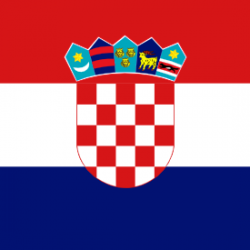

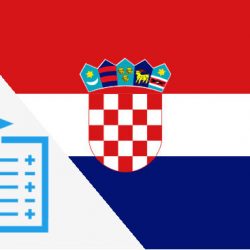
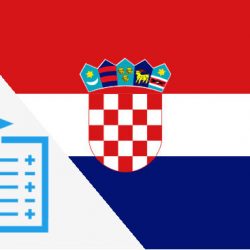
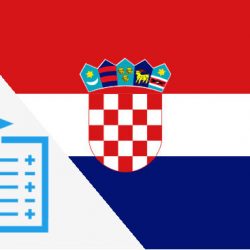

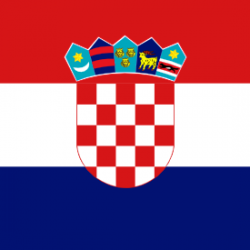
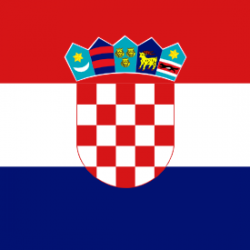
 We will not leak your personal information
We will not leak your personal information